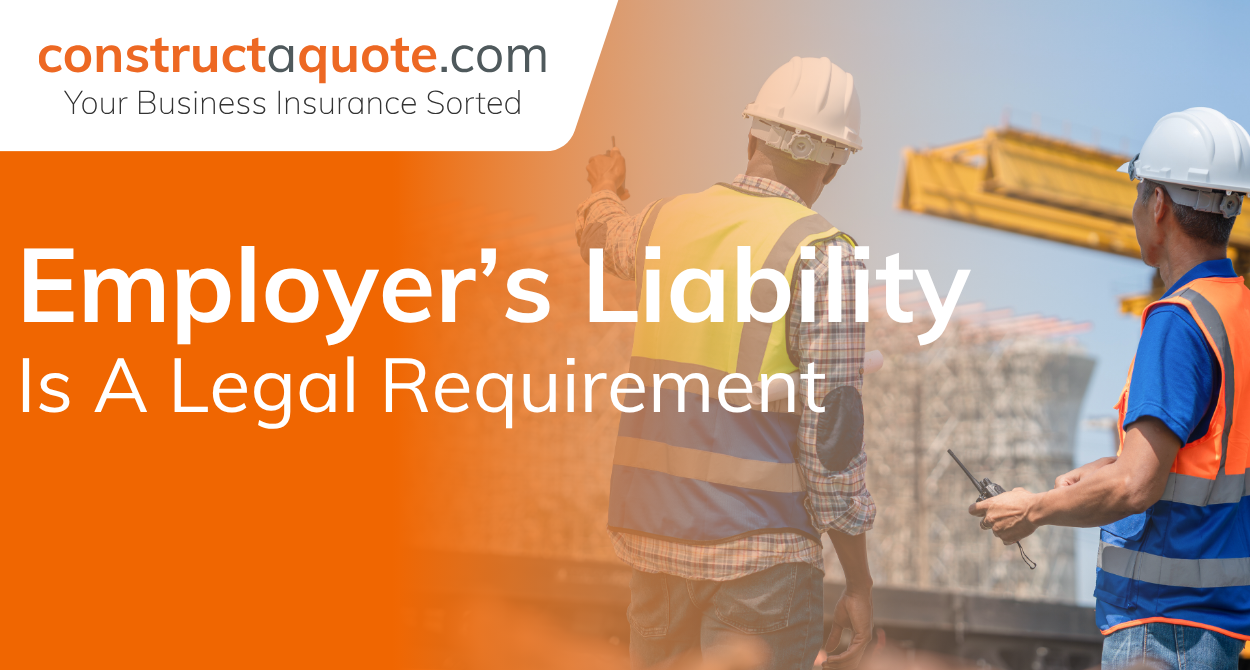by constructaquote - 1 June 2016


Employers liability insurance is considered to be mandatory by law for most business owners who employ people; therefore, we have put together this handy blog to help you find out more about the legalities of it all.
Employers’ liability insurance protects a business and its owners against employees that make a claim as a result of an injury, illness or even damage to their personal property at work.
Many businesses will employ staff to contribute to its business operations. The employer is responsible for the health and safety of their employees whilst they are at their designated place of work.
Under the Employers’ Liability (Compulsory Insurance) Act 1969, it is a legal requirement for businesses that employ staff to purchase employers’ liability insurance. There are very few exceptions, one being if your business is unincorporated and you employ close family members only including: your husband, wife, civil partner, parents, grandparents, step-parents, children, grandchildren, step-children, or siblings.
However, it is worth noting that this exemption does not apply to family businesses which are incorporated as a limited company.
As noted above, employers’ liability insurance (or EL insurance) will cover costs that could arise should an employee suffer an injury, illness or disease as a direct result of working for you.
The risk of an employee being injured in an accident can be minimised by implementing a coherent Health and Safety strategy.
Health and Safety Executive (HSE figures 2009/10) showed that 152 workers in the UK suffered fatal injuries at work, and 1.3 million people suffered from an illness believed to have been caused or made worse by their current or past jobs.
Such incidents could prove extremely costly, especially for small businesses. Not only would working days be lost, the employee could make a claim against you or your business for neglecting to ensure their safety.
What could happen if I don’t purchase Employers Liability Insurance?
If a business with employees that is required by law to have insurance cover, fails to purchase the correct level of employers’ liability insurance it will likely be classed as trading illegally. The business could be susceptible to penalties of up to £2,500 for every day that it has traded without insurance or, at worst a maximum of 14 years imprisonment.
When employers’ liability insurance is purchased, the buyer will be provided with a certificate that proves its validation. This will need to be visible to all employees. This can now legally be displayed in electronic format.
Claims can arise years after an employee has worked for you or your business as some diseases could take a long time to develop. Consequently, you may want to keep hold of previous employers liability records and certificates.
Please note…
• A sole trader, also known as ‘one man band’ will not need to acquire employers liability as it will not employ any staff.
• A family business will not need to obtain employers’ liability insurance – unless it is incorporated as a Limited Company.
• Work experience students and voluntary/unpaid ‘helpers’ will be classed as employees so as a result must be covered by employers’ liability insurance.
This guide is part of our series on employers liability insurance, for product information, links to more guides or to get a quote, visit our employers liability section here. You can also call our UK based sales team on 08081 686868.

by Charlotte Houghton - 7 October 2020
by constructaquote - 6 October 2020
by Charlotte Houghton - 29 September 2020
by Charlotte Houghton - 24 September 2020